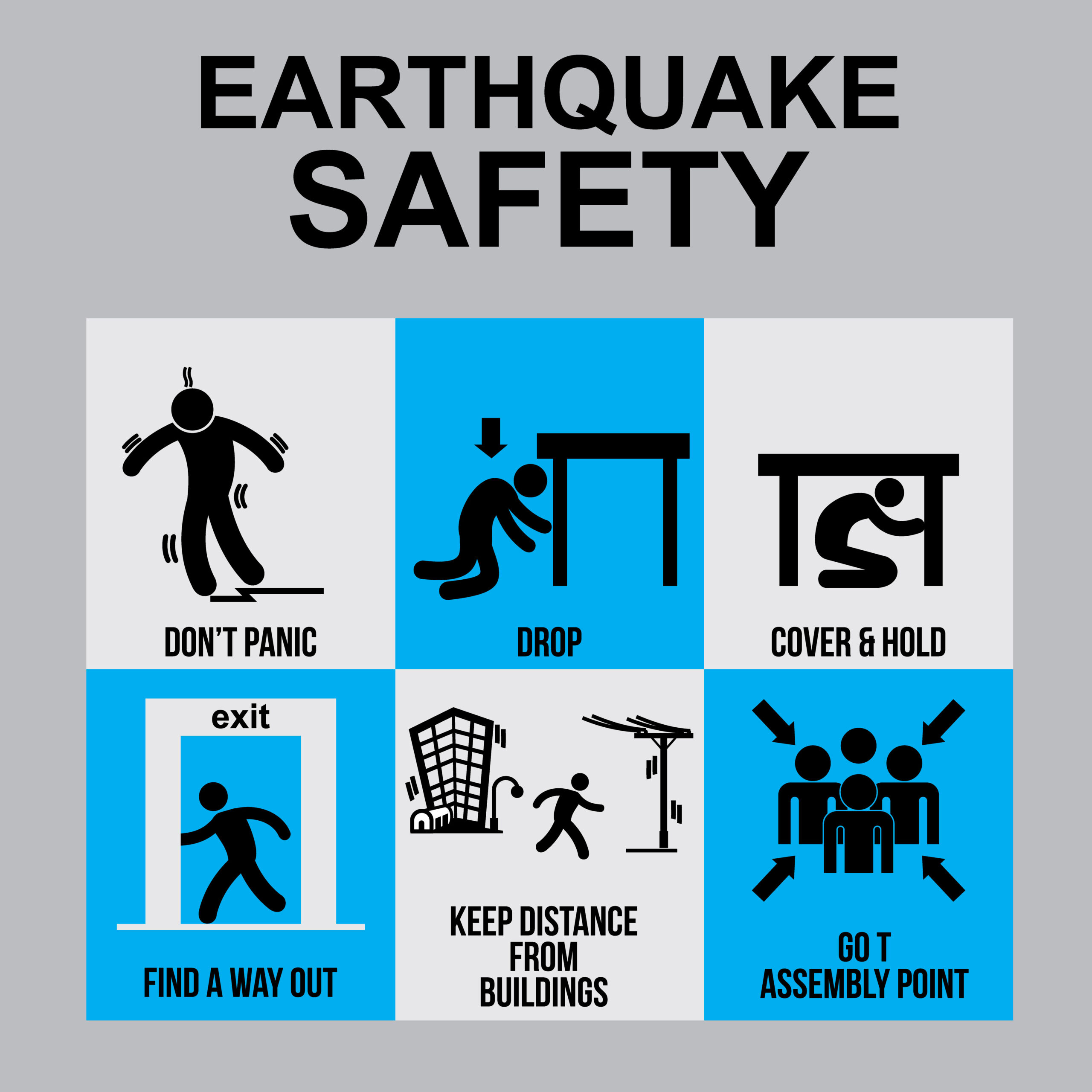
Earthquakes are unpredictable natural disasters that can cause significant destruction and loss of life. While it is impossible to predict the exact time and location of an earthquake, there are steps you can take to prepare and protect yourself during and after the tremors. Here are some expert recommendations to minimize the risk of injury or death.
Preparing for an Earthquake
- Understand the Risks in Your Area
- Consult seismic activity maps to assess your region’s risk level. Areas along the Pacific Ring of Fire, for instance, are highly susceptible to major earthquakes.
- Stay informed about the potential for aftershocks, which can last for weeks or even months following the initial quake.
- Download Earthquake Alert Apps
- Many countries offer government-backed mobile applications that provide alerts for earthquakes, tsunamis, and other natural disasters. Ensure that notifications are enabled on your device.
- Some private apps also offer similar features, and certain regions may have outdoor sirens as part of their alert systems.
- Secure Your Home
- Move heavy furniture and appliances away from beds and sofas. Securely fasten items such as televisions, computers, and water heaters to prevent them from falling.
- During the 1994 Northridge earthquake, 55% of injuries were caused by loose objects, not building collapse. Securing items can significantly reduce injury risk.
- Create a Family Emergency Plan
- Establish a clear sequence of actions for each family member. Practice these steps regularly to ensure everyone knows what to do.
- Prepare an emergency kit with essential items: flashlights, important documents, medications, a small amount of cash, and personal hygiene items. Include a whistle for signaling rescuers if you become trapped.
- Consider Earthquake Insurance
- Insure your home and belongings against earthquake damage. Take photos of valuable items to facilitate claims.
What to Do During an Earthquake
- Stay Indoors and Use the “Drop, Cover, Hold On” Technique
- Drop to your hands and knees to protect vital organs and maintain balance.
- Cover your head and neck with one hand, and hold onto your shelter (e.g., a sturdy table) with the other. If no cover is available, shield your head and neck with both hands.
- Hold On until the shaking stops.
- Avoid Doorways and Elevators
- Contrary to popular belief, doorways are not stronger than other parts of the building and will not protect you from falling objects.
- Do not use elevators, as they may malfunction during a quake.
- If Trapped Under Debris
- Stay calm and do not attempt to move the rubble, as this could cause further collapse.
- Protect your nose, mouth, and eyes from dust. Signal rescuers with a whistle or by tapping three times in succession if you don’t have one.
- If You Are Outdoors
- Move away from buildings, power lines, and vehicles. These areas are prone to falling debris and structural collapse.
- Once in an open space, use the “Drop, Cover, Hold On” technique.
- If You Are in a Car
- Stop the vehicle in a safe place away from bridges, road signs, and trees. Stay in the car with the handbrake engaged until the shaking stops.
- If a power line falls on your car, remain inside until help arrives.
- If You Are Near the Coast
- Move to higher ground or further inland immediately after the shaking stops to avoid the risk of a tsunami.
- Seek refuge in a sturdy building at least three stories high if you cannot move away from the coast.
After the Earthquake
- Stay Alert for Aftershocks
- Aftershocks can occur minutes, days, or even weeks later. Be cautious and prepared for additional tremors.
- Avoid entering damaged buildings and be aware of any unusual sounds that might indicate structural instability.
- Check Utilities for Damage
- Inspect gas, water, and electrical lines for damage. Turn off the supply if you notice any issues.
- Do not use open flames or electrical appliances until you are certain there are no gas leaks.
- Limit Phone Use
- Use your phone only for emergencies to avoid overloading the network, which could prevent others from reaching emergency services.
- If possible, assist those in need around you.
By following these guidelines, you can increase your chances of staying safe during and after an earthquake. While you can’t predict when a quake will occur, being prepared can make all the difference.

